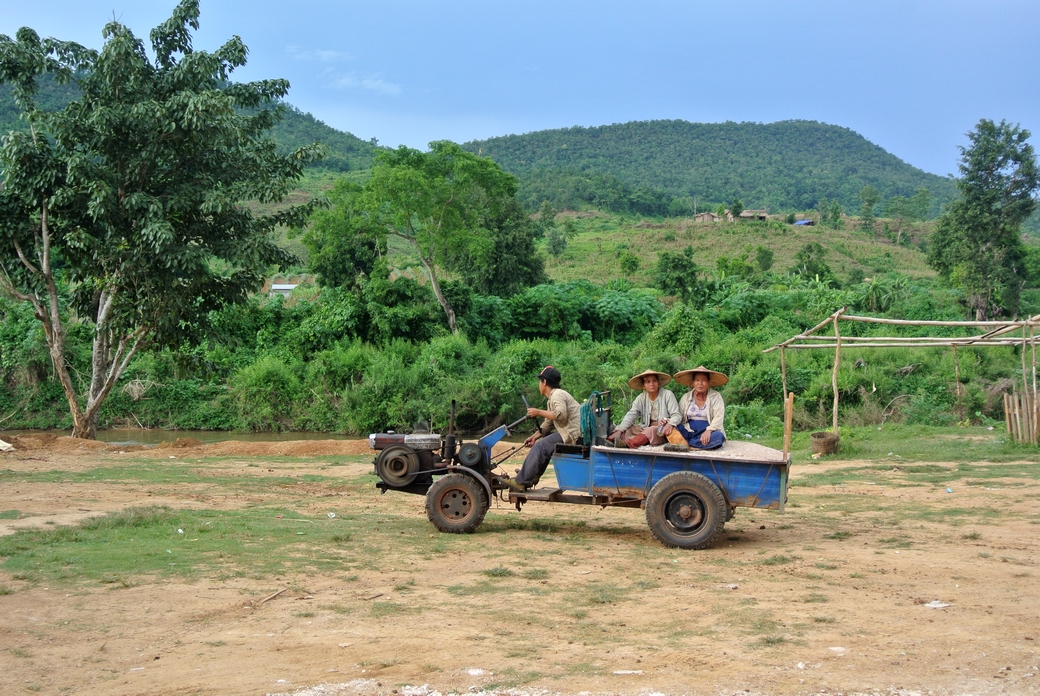On April 22nd 1970, the UN celebrated World Earth Day for the first time in the history to shed light on the environmental challenges we have to face in order to preserve our Planet.
Dealing with climate change is one of the most worrying issues, since its effects are causing particularly severe consequences.
Public discussions on global warming are often focused on prevention, but addressing the phenomenon means also to mitigate already existing effects.
This is what Cesvi is doing in Myanmar by working on bulding the resilience of population and environment. The agricultural intervention financed by UNDP Adaption Fund Project is aimed to adapt cultivations to climate conditions and to enhance capacities in planning and responding to the increasing impact of climate instability on food and economic security. The projects is implemented in the Dry Zone, which comprises Mandalay, Magway e Sagaing regions; the area is one of the poorest of the country, and at the same time one of the most affected by drought and extreme weather events such as floods and cyclones.
Newly Introduced Drought-Resilient Paddy Seeds Improved the Food Security for Marginal Farmers in Dry Zone, Myanmar
Kan Pauk village is located in Pay Taw village tract, in the Myingyan Township of the Dry Zone. For their livelihoods, farmers mainly rely on agricultural crop cultivation such as paddy, groundnut, pigeon pea and chickpea. Before Cesvi’s intervention, most of the farmers grew Manawthukha rice, which can’t tolerate drought and bacterial leaf blight. Even with favorable weather condition of the year 2017, Manawthukha variety could only produce 75-80 baskets per acre. During Cesvi intervention with UNDP-Adaptation Fund Project, Cesvi introduced the drought resilient paddy variety of Ye Ah Ne Lo 4 through participatory demonstration plots.
U Kyaw Wa from Kan Pauk village is one of farmers who played a key role in establishing the demonstration plots. He received one basket of drought resilient paddy seeds and a specific training.
According to the technical guidelines of the training, U Kyaw Wa implemented one acre of paddy demonstration plot. During the growing period, extension staff from the Department of Agriculture and technical specialist from Cesvi visited the field to provide technical assistance. Moreover, 20 farmers visited the field during the farmer field day organized by Cesvi.
With the new variety, U Kyaw Wa could harvest 120 baskets per acre of riceland, obtaining 40 baskets more than the local variety of Manawthukha, contributing to an improved food security at household level.
Farmers from Kan Pauk and nearby villages were impressed by this drought resilient paddy seed, with its distinct features of high yielding and low amount of water requirement. Producers of traditional rice snacks also preferred this variety thanks to its stockiness just after harvesting. U Kyaw Wa will grow the newly introduced variety in the coming monsoon and will distribute the seeds to other interested farmers.
The USD 7.9 million, four-year project, the first in Myanmar to receive funding from the Adaptation Fund, is being implemented by UNDP in partnership with the Ministry of Natural Resources and Environmental Conservation (MONREC), and specifically the Dry Zone Greening Department based in Mandalay. The project started in 2015 and will conclude in 2019. Cesvi is assisting in the implementation of the component on climate-resilient agriculture practices.
